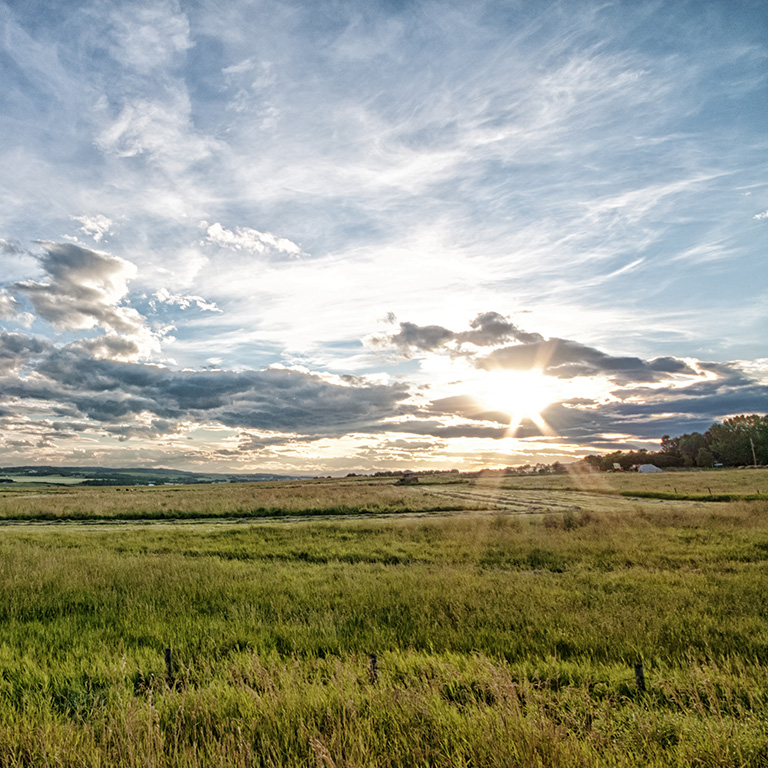Indiana University is collaborating on a new Climate Adaptation Science Center (CASC) funded by the U.S. Geological Survey (USGS) and dedicated to advancing science in response to the climate crisis in the Midwest.
A consortium of eight universities and natural resource organizations, the Midwest CASC will be hosted at the University of Minnesota and, in addition to IU, will include the University of Wisconsin-Madison, the College of Menominee Nation, the Great Lakes Indian Fish and Wildlife Commission, Michigan State University, the University of Illinois, and The Nature Conservancy. The US Department of the Interior announced the newest of nine regional Climate Adaptation Science Centers on Sept. 29.
IU’s participation in the center will be led by the Environmental Resilience Institute (ERI), IU’s transdisciplinary hub for environmental change and resilience work. Launched in 2017 as part of IU’s Prepared for Environmental Change Grand Challenge, ERI will contribute its experience working with communities to develop resilience-related tools and resources and implement equitable climate solutions. ERI Executive Director Gabriel Filippelli and IU Distinguished Professor of Biology Ellen Ketterson, who served as the institute’s founding director, will represent IU on the Midwest CASC leadership team.
“It’s not enough to measure the impacts of climate change. We also need to enact just solutions that work across sectors, communities, and ecosystems,” said Filippelli. “That’s where ERI really shines, and that’s one of the big things we bring to this new center. We look forward to sharing with our consortium partners our expertise in helping Midwestern communities understand their vulnerabilities to climate change and make plans to become more resilient.”
Together, the Midwest CASC consortium organizations will work closely with federal, state and tribal entities in Minnesota, Wisconsin, Michigan, Iowa, Missouri, Illinois, Indiana, and Ohio to support management and protection of land, water, and natural resources with actionable climate science, innovation, and decision support tools.
The CASC will also fund individual research projects and work collaboratively across the consortium on key issues in the region that involve adaptation practitioners. Research will focus on climate adaptation to better understand vulnerabilities to climate change, development of ecologically and culturally appropriate adaptation actions, and creating monitoring methods designed to continuously improve outcomes through changing conditions.
"We are thrilled to have the opportunity to connect our talented faculty and students at both the Bloomington and Indianapolis campuses with the research goals of the Midwest CASC", said Ketterson. "Working with our partners in the region, we will seek to better understand and address the myriad changes being experienced across our lands due to climate change".
The consortium will pay special attention to tribal concerns and build off the unique and robust experience of Midwest Tribes with adaptation science and practice. This includes a fellowship program for graduate students and a summer research experience for undergraduates designed to enhance tribal participation. Another key focus will be the interplay of natural resources, forestry, streams and wetlands, and agricultural and urban areas—all land uses that are prominent in the Midwest.
The partnership will be effective immediately, with a formal ribbon cutting celebration planned on the University of Minnesota-Twin Cities campus later this fall.
About the Environmental Resilience Institute
Indiana University's Environmental Resilience Institute brings together a coalition of university scholars and leaders in government, business, and the nonprofit and community sectors to help Indiana better prepare for the challenges that environmental changes bring to Hoosiers' economy, health, and livelihood.
About CASCs
Each CASC is hosted by a public university, composed of a multi-institution consortium and managed by the National CASC that oversees the nationwide network and pursues multi-region projects of national significance. These partnerships ensure access to a broad range of scientific expertise, production of high-quality science and sharing of funds, resources and facilities. University involvement also allows the CASCs to introduce students to the idea of "co-producing" science, in which scientists and decision-makers work closely together to ensure scientific research and products are usable and directly address real-world problems. Learn more about the history of CASCs.





